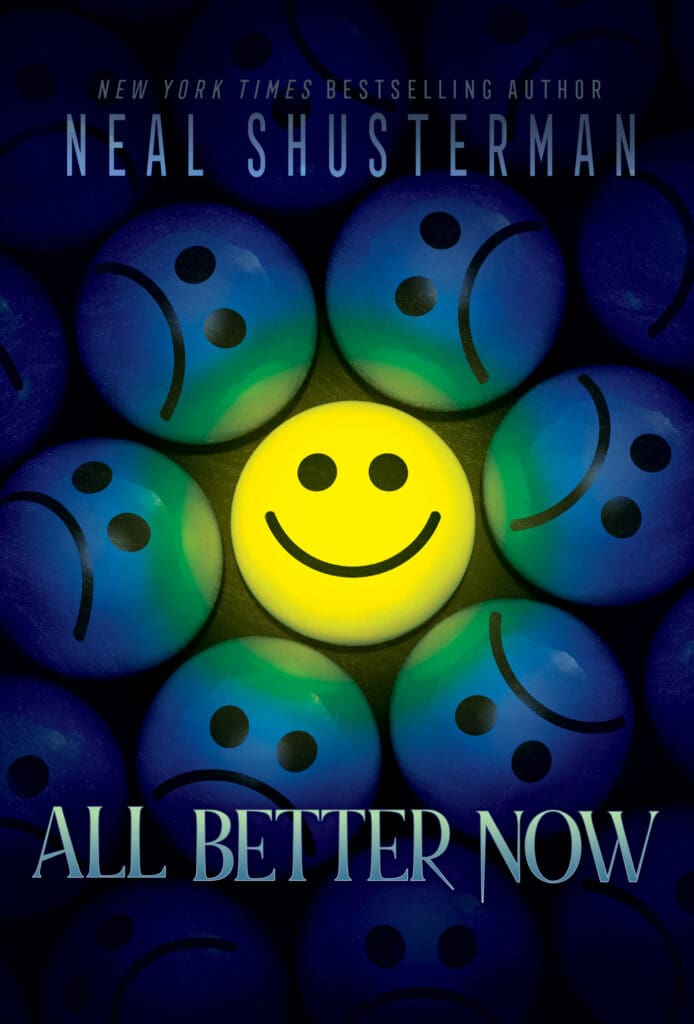
Blurb
A deadly and unprecedented virus is spreading. But those who survive it experience long-term effects no one has ever seen before: utter contentment. Soon after infection, people find the stress, depression, greed, and other negative feelings that used to weigh them down are gone.
More and more people begin to revel in the mass unburdening. But not everyone. People in power—who depend on malcontents and prey on the insecure to sell their products, and convince others they need more, new, faster, better everything—know this new state of being is bad for business. Surely, without anger or jealousy as motivators, productivity will grind to a halt and the world will be thrown into chaos. Campaigns start up to convince people that being eternally happy is dangerous. The race to find a vaccine begins. Meanwhile, a growing movement of Recoverees plan ways to spread the virus as fast as they can, in the name of saving the world.
It’s nearly impossible to determine the truth when everyone with a platform is pushing their agenda. Three teens from very different backgrounds who’ve had their lives upended in very different ways find themselves at the center of a power play that could change humanity forever.
Preorder Your Copy Here!
About the Author
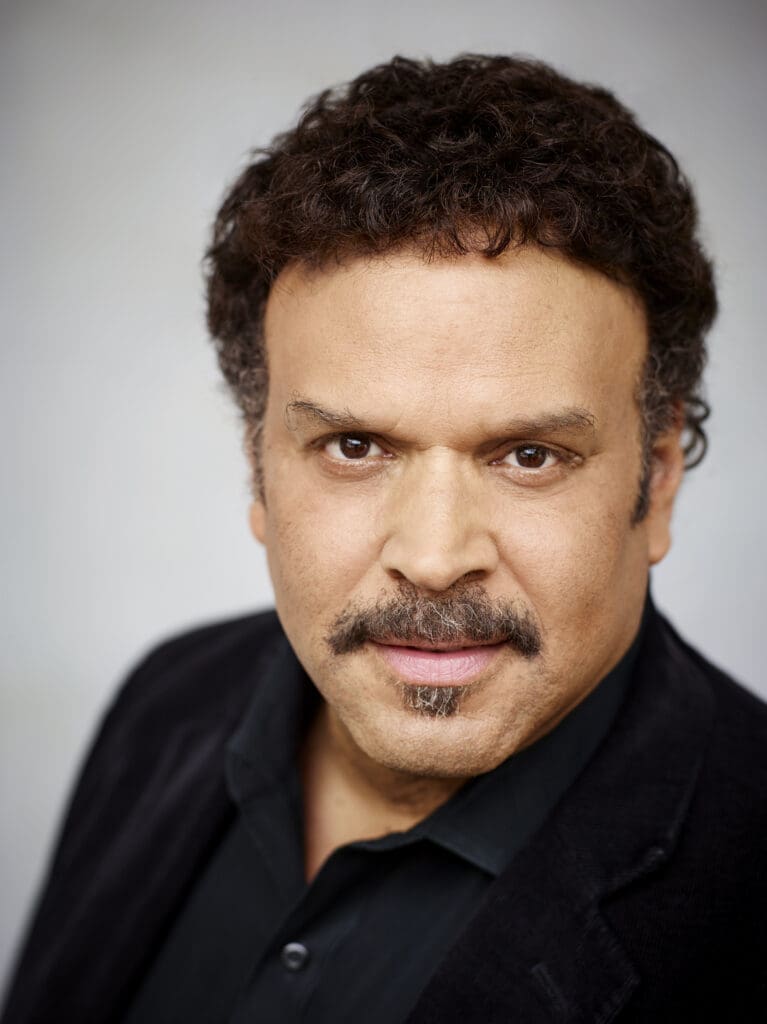
Neal Shusterman is the New York Times bestselling author of more than thirty award-winning books for children, teens, and adults, including the Unwind dystology, the Skinjacker trilogy, Downsiders, and Challenger Deep, which won the National Book Award. Scythe, the first book in his series Arc of a Scythe is a Michael L. Printz Honor Book. He also writes screenplays for motion pictures and television shows. Neal is the father of four, all of whom are talented writers and artists themselves. Visit Neal at StoryMan.com and Facebook.com/NealShusterman.
Excerpt
1
Mariel Rides Space Mountain
It was the wrong time to be living on the streets.
Not that there was ever a right time, but this new disease— it was picking up steam, threatening to be another pandem— No. No, Mariel didn’t even want to invoke the P word. As if just thinking it would make it so.
“It’s not so bad, baby,” her mother told her. “It’s not like we gotta be near people. Even out here we can find ways to isolate. We don’t gotta be near anyone if we don’t want to be.”
Mariel’s mother lived in denial. Truly lived there. If denial were a solid piece of real estate, Gena Mudroch would have a mansion on it. Or at least a garage so they’d finally have a safe and legal place to park their beat-up Fiesta.
Right now it was parked, all right. Behind a fence at the impound. Which was why Mariel and Gena were standing on a dark street in the seediest industrial part of town, in the middle of the night, waiting on someone who was, in theory, going to help them break their car out.
Unlike her mother, Mariel did not live in a constant state of denial. She was practical. A realist. She had to be; practi- cality was more than a survival skill—it was her superpower. Because without it, her mom would probably be dead, and Mariel would have been swallowed whole by the foster care system years ago.
“Maybe . . . ,” began Mariel. “Maybe we should be with people.”
“What, and catch this thing? No way!”
“But maybe we should get it over with quick. You know— before the hospitals get full, while there are still services for us.” Her mom brushed her straggly hair out of her eyes. “I know what you’re thinking,” she said, giving Mariel her suspicious look—the one she usually reserved for anyone and every- one else. “You can’t really believe what the nuts out there are saying?”
“I know it sounds . . . out there . . . but there’s always a chance it could be true.”
“Since when do you listen to rumors, huh? You, who’s gotta have scientific proof of everything under the sun!”
Her mother was right—rumor was the currency of igno- rance. But anecdotal evidence had to count for something. “I’ve seen interviews with people who’ve had it,” Mariel told her mom. “They seem . . . I don’t know . . . different.”
“How can you know they’re different when you didn’t know ’em to begin with?”
Mariel shrugged.“There’s something in their eyes, Momma.
Something . . . wise.”
Her mother guffawed at that. “Trust me, no one gets smart from getting sick.”
“I didn’t say ‘smart.’ I said ‘wise.’”
But “wise” wasn’t really the word for it either. “Centered” was more like it. Being at home. Even if you don’t have one.
“You’re dreaming,” her mother said. “That’s okay, you’re allowed.”
As practical as Mariel needed to be to survive life with her mother, she wasn’t immune to the occasional flight of fancy. Especially when it gave her hope. She told herself that hanging on to hope was nothing like her mother’s perpetual state of denial, but deep down, she knew hope and denial were reluctant neighbors. They glared at each other from across the same silty river of circumstance.
Across the lonely street, a man walked with a purposeful gait, which also seemed a bit loose, like his joints were made of rubber. Although he was mostly in shadow, Mariel could tell he glanced over at them. Was this the guy? Or was this just some- one who was gonna bring them trouble? Turned out he was neither; he just continued on his merry way toward whatever place a rubbery man goes at two in the morning.
“That’s not true, you know,” she said to her mom, who had already forgotten the conversation and needed to be reminded. “People do grow from being sick. What about Grandpa—he changed. He had a whole new perspective after he beat cancer.” Her mother gave a rueful chuckle. “I wouldn’t want to go through that just to get some perspective. And besides, a heart attack got him not a year later, so what good did that perspective do?”
Mariel had no answer for that one. Now it was her mom sounding like the realist.
“We’ll be fine, baby,” she said. “We’ll find a place where we can park safe and legal, and then we’ll hunker down and wait it out, once we get the Grinch out of impound.” The Grinch was their green Fiesta. Mom had a thing about naming inanimate objects.
The guy who was coming to help them was late. Her mother had said “two-ish,” but that was from the guy who knew the guy that knew her mom. Three degrees of separation from a nameless man who already had their money.
Realism told Mariel he wasn’t coming. Hope told her that maybe something better was.
Mariel always did her best to align her need for hope with her practical nature. In this case, both told her that maybe it was best to lean into this pandemic—and yes, she used the P word, because clearly that’s what it was becoming. But a differ- ent one. A very different one.
The previous one, of course, was devastating. Millions dead worldwide. People fighting science, grasping at absurd conspiracy theories, hearsay, and random social media posts, even as they lay dying. While people who did follow the science and the rules wished death upon those who didn’t. That pandemic exposed the very worst of human nature on all sides.
Her mom, of course, was one of the deniers, and went out partying during the worst of it. She caught it early, and although Mariel never did, it seemed her mom had it bad enough for both of them. Bad enough to land her in the hos- pital. They still had insurance back then, but it didn’t matter, because there were no ventilators to be had. Her mom made it through—but it took forever. She had the long syndrome—not technically sick anymore, but not actually better. She couldn’t work for months, and once she could, her job was gone. The restaurant she had worked at, like so many restaurants in San Francisco, went permanently out of business.
After that, it was Space Mountain.
That’s what Mariel called her mother’s tumultuous down- ward spirals—which her mom always rode with her eyes firmly closed and in the dark. And although her mom managed to get occasional work here and there when the world opened up, the damage had been done. Damage on too many levels to count.
So now they were here. On a deserted street, where nobody in their right mind should be, at an hour nobody in their right mind should be there, waiting for a guy who probably wasn’t coming.
“Wouldn’t it have been better to just use the money to pay the ticket and the impound fee, instead of paying some guy you don’t even know?”
To that, her mother just grunted.
That money, which had been demanded in advance, was basically all the money they had left. The last bit given to them by Mariel’s uncle, who said it was the last time. Which was what he always said.
“This asshole ain’t showing,” her mom finally proclaimed. Then she sighed. “Sucks to be us.” That was her favorite expres- sion. Right up there with “It is what it is.”
Well, Mariel refused to accept it being what it was. And she refused to accept a sucks-to-be-me attitude. Feeling sorry for herself wouldn’t help anyone, least of all her.
But that latest interview she had seen . . . If what she sus- pected was true, it could help everything. Change everything. Maybe.
It was just a few days ago. They had been sitting in a bar and grill that called itself a gastropub so they could charge more, and eating a meal that her mom would pay only about a third of before bailing. Mariel respected that about her mother: she wouldn’t just dine-and-ditch; she would always leave some- thing.
“I won’t stiff the servers,” she told Mariel. “They deserve better than what we can give.” It was her hope that the server would pocket that money as a tip, and let the restaurant write off the meal.
The gastropub had three TVs, and although two of them were showing sports, the third showed the news. A man who had been hospitalized for “Crown Royale”—which was what they were calling this new coronaform virus—was being inter- viewed. For a man who had just been at death’s door, he looked pretty happy—and it wasn’t just relief at being alive.
“How do you feel now?” the reporter asked. A dumb but obligatory question.
The man smiled a genuine smile and seemed to focus on the reporter as if seeing something wonderful in her eyes.
“I feel better than ever!” he said. “Really—better than ever!”
And then he laughed. He actually laughed. As if all his cares and worries had lifted with his fever, never to return.
Mariel could definitely use some of that.

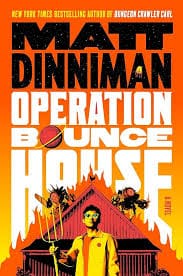
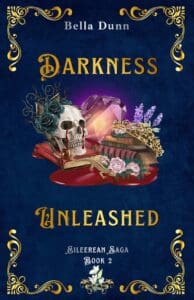
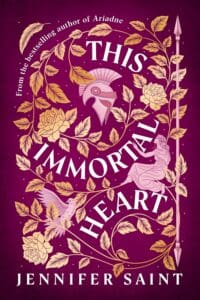
Leave a Reply